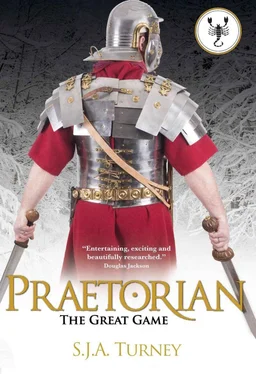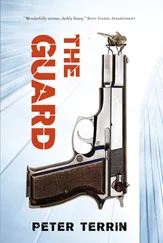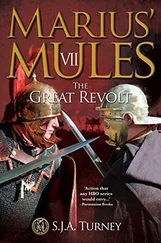S.J.A. Turney - The Great Game
Здесь есть возможность читать онлайн «S.J.A. Turney - The Great Game» весь текст электронной книги совершенно бесплатно (целиком полную версию без сокращений). В некоторых случаях можно слушать аудио, скачать через торрент в формате fb2 и присутствует краткое содержание. Год выпуска: 2015, Издательство: Mulcahy Books, Жанр: Исторические приключения, на английском языке. Описание произведения, (предисловие) а так же отзывы посетителей доступны на портале библиотеки ЛибКат.
- Название:The Great Game
- Автор:
- Издательство:Mulcahy Books
- Жанр:
- Год:2015
- ISBN:нет данных
- Рейтинг книги:4 / 5. Голосов: 1
-
Избранное:Добавить в избранное
- Отзывы:
-
Ваша оценка:
- 80
- 1
- 2
- 3
- 4
- 5
The Great Game: краткое содержание, описание и аннотация
Предлагаем к чтению аннотацию, описание, краткое содержание или предисловие (зависит от того, что написал сам автор книги «The Great Game»). Если вы не нашли необходимую информацию о книге — напишите в комментариях, мы постараемся отыскать её.
The Great Game — читать онлайн бесплатно полную книгу (весь текст) целиком
Ниже представлен текст книги, разбитый по страницам. Система сохранения места последней прочитанной страницы, позволяет с удобством читать онлайн бесплатно книгу «The Great Game», без необходимости каждый раз заново искать на чём Вы остановились. Поставьте закладку, и сможете в любой момент перейти на страницу, на которой закончили чтение.
Интервал:
Закладка:
Cleander shook his head sadly and laid a hand on the tearful young man’s shoulder. ‘Come, Saoterus. Let us partake of food while we await the emperor’s summons.’
The pair stood and made their way back along the corridor, out into the atrium. Paternus stood for a moment, perhaps allowing time for them to disappear from sight before he moved on.
‘Vultures! Aurelius isn’t even cold yet and they’re already gathering to hook their talons in the boy. Snakes, vultures and catamites, the lot of them. If half Aurelius’ friends in the senate were here, these vermin wouldn’t dare poke their faces out into the light.’
Rufinus kept his mouth carefully closed and waited until Paternus sighed and walked on before continuing behind and trying to remain more or less invisible. Today’s events were becoming more and more complex with every turn and he was ill-prepared to deal with it all.
Silently, he followed them out through the corridors and rooms of the commander‘s house, the prefect clearly seething as he strode on ahead, the other two guards remaining carefully quiet. A moment later they strode out into the grey of late morning, already half a hand-width of snow beneath their feet and more falling from the sky in increasing quantity with each passing moment.
Without pausing or exchanging words with him, Paternus and his two men turned away and walked off toward the Praetorian barracks. Rufinus, his senses numb, battered by the input they had received this morning, stood in the doorway, the flanking guards watching him warily. His gaze dropped to the floor where snow was settling on his boots. Three fresh sets of footprints led off in the wake of the commander and his guards. Two more, clearly that of the two freedman, disappeared the other way, out toward the main street.
Briefly, he considered following the pair, but such foolishness would likely only lead to yet more nerves and discomfort.
Shrugging, he strode out and made for the clerk’s office. He was a Praetorian now and his emperor had need of him.
PART TWO: ROMA
VI – Journeys and recollections
RUFINUS sighed wearily and slumped a little further in the saddle. The front horns of the leather seat had been rubbing his hips raw for five days now and every step the beast took was a fresh hell of scraping pain. The segmented plate armour, never a good choice for horseback travel, felt as heavy as Atlas’ burden. The cohort was not a unit of Praetorian cavalry as such, but speed of travel was Commodus’ highest priority and so the cohort had been mounted for the journey.
On the bright side, the weather, which had been warming for months now, had improved dramatically as soon as the column had descended the southern side of the Alpes and made for Italia. Now, the blue sky was beautifully accompanied by the buzz of bees, the chirp of birds and the scratching of cicadas in the long grass. The height of summer may have just passed while the emperor remained in Vindobona, but autumn in Rome promised to be warm and comfortable.
The column had joined the Via Flaminia at Ariminium on the Adriatic coast and then turned southwest for the almost two hundred mile crossing of the mountains. Fortunately they were travelling outside the snow and avalanche season, and there was a sense of weary gratitude among the men as they closed on the last leg of the journey. The grey-brown pall that hung in the air over the next rise indicated the presence of the greatest city in the world, a city that was the ancestral home of the Rustii, even if Rufinus himself had never set foot there.
The change in weather conditions over the past six months was echoed in the changes visible in the emperor and his entourage, and yet more in the newest member of the emperor’s guard. Gone were the shaggy black hair and itchy beard. Rufinus was, as he had always wished to be, neatly trimmed and manicured, clean-shaven and tidy.
Months had passed in Vindobona as the emperor developed the frontier and Rufinus settled into the routine of the guard, which was greatly different to that of the legions. The few men he had known since the beginning, those he had fought alongside in that snowy woodland dell, became good friends, particularly Mercator. The majority of the First cohort, however, would only exchange words with him as required by duty and a few, whose names had been permanently etched into his memory, had taken a serious dislike to him.
The troubles, instigated by three men in particular, had begun with the traditional ‘cold shoulder’ and quickly moved on to petty tricks. Rufinus had taken it all stoically; such trickery was the norm with a new man in a unit. But the third week had seen an escalation that had driven the feud to unacceptable limits: the theft of his silver spear, the ‘hasta pura’, had finally broken his composure.
That evening, as the ringleader, Scopius, entered the latrine to relieve himself after his evening meal, Rufinus had slipped through the door behind him, closing and bolting it. A quarter of an hour later he had emerged, having revealed to Scopius in very physical terms his background in inter-unit boxing. The bulky, sneering guardsman who had plagued him for three weeks spent nine days in the hospital and would complain of his left knee during wet weather for the rest of his life. Unsurprisingly, the silver spear had mysteriously reappeared on Rufinus’ bunk that same night.
The following months had settled into seething disaffection with no overt moves and the whole situation had calmed to an uncomfortable simmer. Indeed, the pasting Scopius had received, though no evidence as to the identity of his assailant could be found, had earned Rufinus a certain grudging respect among a number of the older veterans. Perhaps things would change now they were returning to their home.
The column, strung out along the Via Flaminia, was beginning to pass the first structures, sporadically dotted by the roadside and carefully constructed just far enough away from the great tombs, funerary monuments and columbaria of the rich and famous as to be respectful and proper. Small pockets of folk appeared outside their residences or places of work, gawping at the great column as it passed.
Guardsmen rode alongside the carriages that held the emperor and his companions, keeping the ordinary folk at a safe distance. Commodus’ carriage was particularly fine and large, almost a moving palace, with two separate rooms, containing couches, tables, a bed, cushions and curtains, drawn by four oxen, each titanic in size. The two carriages that followed on close behind carried the new emperor’s circle of friends and advisors.
One of the commoners, standing in the shade of a veranda and wheezing after his labours, bellowed ‘Hail Caesar!’ and threw up his straw hat into the air in an expansive gesture. The shout was taken up by the rest of the citizenry and soon became a deafening roar of acclaim that accompanied them toward the crest of the hill beyond which lay the Porta Fontinalis and the great city itself. The cry echoed round Rufinus’ memory and brought back images of that northern city on the border of the empire:
Standing in the snow on a bitter afternoon a few days after his transfer, in the rich, grand forum of Vindobona, white tunic and gleaming armour lost among hundreds of identical figures, Rufinus had watched the passing of the only emperor he had ever known and had seen the young man who had co-ruled Rome for two years slide seamlessly into the role.
Silent and bleak, Commodus had stood with his family watching, apparently impassively, as his father passed from the world of men and grey-clad mourners with their tragic masks swayed around the square, wailing and sobbing. The watching crowd added their moans and cries of anguish, the whole cacophony brought to horrendous climax by the ear-rupturing addition of the legions’ musicians, blaring out the funeral dirge.
Читать дальшеИнтервал:
Закладка:
Похожие книги на «The Great Game»
Представляем Вашему вниманию похожие книги на «The Great Game» списком для выбора. Мы отобрали схожую по названию и смыслу литературу в надежде предоставить читателям больше вариантов отыскать новые, интересные, ещё непрочитанные произведения.
Обсуждение, отзывы о книге «The Great Game» и просто собственные мнения читателей. Оставьте ваши комментарии, напишите, что Вы думаете о произведении, его смысле или главных героях. Укажите что конкретно понравилось, а что нет, и почему Вы так считаете.












